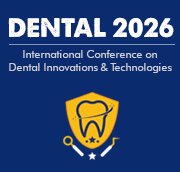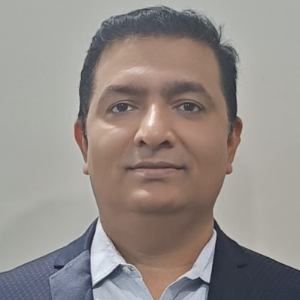Title : Quantitative and comparative evaluation of apical extrusion of debris, irrigating solution and microorganism using manual and various rotary instrumentations with two different irrigation techniques: An ex vivo study
Abstract:
Background: The root canal procedure is an extremely common endodontic procedure rendered in dental practice. Many times, patients may complain of pain, swelling, or both during or after root canal treatment. Endodontic flare-up (1.4–16%) has always been a major concern for the operator. Common causes of flare-ups in endodontics were the extrusion of debris, irrigating solutions, and microorganisms beyond the periapex. Several instrumentations and irrigation methods have been practiced for years, but concern about apical expulsion is unresolved. This preliminary study assessed the efficacy of the recently introduced, heat-treated FlexiCON Ni-Ti rotary instrumentation system with two different irrigation techniques and compared it with existing instrumentation systems.
Aim and Objectives: To quantitatively and comparatively evaluate apical extrusion of
1) debris, 2) irrigating solution, and 3) microorganism using conventional and endoVac irrigation systems in conjugation with four different instrumentation techniques like Group I Manual (Hand), Group II Protaper, Group III WaveOne, and Group IV FlexiCON.
Materials and method: Four hundred and ten single-rooted, human permanent anterior teeth were selected for this analysis. Enterococcus faecalis strain ATCC 29212 was selected for microbial inoculation in each tooth. Four hundred teeth were equally divided into four groups of hundred teeth each. Group I for manual, Group II for protaper rotary, Group III for waveone reciprocating, and Group IV for FlexiCON rotary instrumentation system. Ten teeth were kept as control without instrumentation. Canals were irrigated with conventional needle or endoVac irrigation in each group equally. Extruded debris, irrigating solution, and E. faecalis were quantified and statistically analyzed. Student t test and analysis of variance (ANOVA) were used in this research protocol. (P=0.05)
Results: Group IV exhibited the least amount of debris, irrigating solution, and microorganisms compared to others, irrespective of the irrigation techniques used, while Group I presented the most.
Conclusion: FlexiCON Ni-Ti rotary instrumentation showed the least debris, irrigating solution, and bacterial extrusion compared with manual (hand), Protaper universal rotary, and WaveOne reciprocating instrumentation systems when conventional needle and endoVac irrigation methods were used. EndoVac irrigation method was better than conventional needle irrigation as it caused less expulsion.



